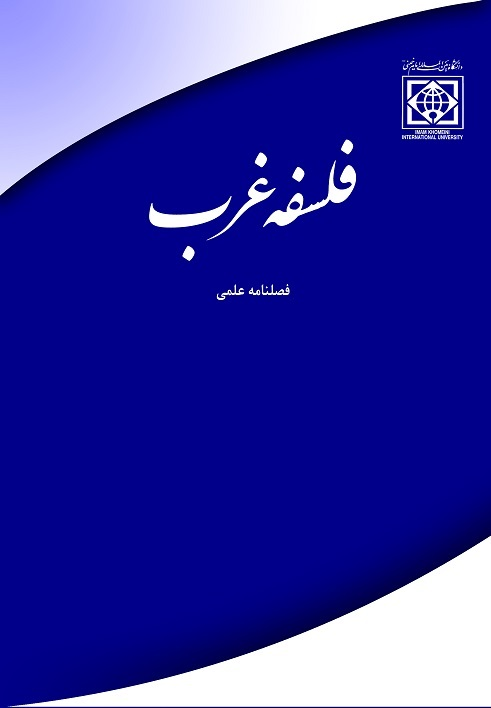تحلیل نسبت بیلدونگ با امر مطلق و هنر در فلسفه شلگل
نوع مقاله : مقاله پژوهشی
نویسندگان
1 دانشجوی دکتری فلسفه تعلیم و تربیت، دانشکده علوم تربیتی و روانشناسی، دانشگاه شهید چمران اهواز، اهواز، ایران
2 دانشیار گروه علوم تربیتی، دانشکده علوم تربیتی و روانشناسی، دانشگاه شهید چمران اهواز، اهواز، ایران
چکیده
از نظر شلگل حقیقت باید مطلق باشد و رسیدن به مطلق بوسیله مقولات فلسفی به آن شکلی که میان فیلسوفان ایدهآلیسم آلمانی آن دوره متداول بود امکانپذیر نیست. شلگل آگاهی را یک آگاهی تاریخی تعریف میکنند که خود را در دورههای گوناگون تاریخی در دل فرهنگ نشان میدهد. این فرهنگ شامل آثار هنری، آیینها و سمبلهای هر دوره میشود. مطلق نه آگاهی محض است و نه طبیعت بیکران بلکه جایی میان این دو قرار دارد. مطلق برای شلگل یک هماهنگی و هارمونی است که بوسیله یک آگاهی فراگیر شکل گرفته است. شلگل این هارمونی را بیلدونگ میداند که در حقیقت بنیان مطلق بودن بر همین هارمونی استوار است. هر چیز که پرورش مییابد و از دل این مطلق بیرون میآید در یک هماهنگی و نظم قرار دارد. در فلسفه شلگل بیلدونگ جای مقولات و قواعد فلسفی را میگیرد تا مطلق پدید آید. انسان برای رسیدن به یک هماهنگی و هارمونی همانند طبیعت باید از یک بیلدونگ بهرهمند شود. بیلدونگ مدنظر شلگل یک بیلدونگ هنری است که در درون خود با عشق، اخلاق و عرفان پیوند برقرار میکند
کلیدواژهها
عنوان مقاله [English]
Analysis of Relationship Between Bildung With The Absolute And Art in Schlegel’s Philosophy
نویسندگان [English]
- Kiani Farzad 1
- Parvaneh Valavi 2
1 PhD student in Philosophy of Education, Faculty of Educational Sciences and Psychology, Shahid Chamran University of Ahvaz, Ahvaz, Iran
2 Associate Professor, Department of Educational Sciences, Faculty of Educational Sciences and Psychology, Shahid Chamran University of Ahvaz, Ahvaz, Iran
چکیده [English]
According to Schlegel, truth must be absolute, and attainment of the absolute by philosophical categories is not possible in the way that was common among the philosophers of German idealism of the time. Schlegel defines consciousness as a historical consciousness that manifests itself in the heart of culture in different historical periods. This culture includes works of art, rituals and symbols of each period. Absolute is neither pure consciousness nor infinite nature, but there is a place between the two. Absolute for Schlegel is a harmony formed by a universal consciousness. Schlegel considers this harmony to be Bildung, which is in fact the basis of absoluteness. Everything that grows and emerges from the heart of the Absolute is in harmony and order. In Schlegel's philosophy, Bildung replaces philosophical categories and rules to create the absolute. To achieve a harmony like nature, man must benefit from an education. Schlegel's education is an artistic building that connects love, morality and mysticism within itself.
کلیدواژهها [English]
- Infinity
- Absolute
- consciousness
- cultivation
- culture
 فلسفه غرب
فلسفه غرب
